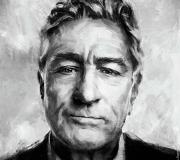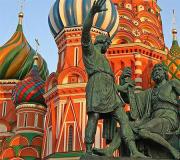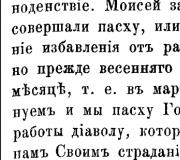Hero of Mubariz. Why Mubariz Ibrahimov is a national hero of Azerbaijan
The history of every country knows many heroes who gave their lives for their homeland. Their names are written on the stone so that descendants know and honor the memory of those who gave their lives for the peaceful life of their compatriots. And it’s a pity that there are still places on Earth where wars do not stop and new heroes appear almost every day... One of them is Mubariz Ibragimov.
Why are Azerbaijan and Armenia fighting?
The conflict between the two countries has long historical roots, but the peak occurred in 1987-1988, and military control over Karabakh began in 1991-1994. In 1994, a protocol on a ceasefire and truce was signed in Bishkek between Azerbaijan, on the one hand, and Armenia and the Nagorno-Karabakh Republic, on the other. But there is no truce in its true meaning to this day, because every day there are shellings from both sides and both countries are losing soldiers. Armenia refuses to return its lands to Azerbaijan and is legally considered an occupier, since the UN Security Council recognized the Nagorno-Karabakh Republic as belonging to Azerbaijan and there are 4 resolutions demanding the immediate return of the territories to their legitimate country.
Who is Mubariz Ibragimov
Let's talk about this hero. Serviceman Mubariz Ibragimov was born on 02/07/1988 in Aliabad (Bilasuvar district). He graduated from the rural secondary school named after Malik Piriev in Aliabad in 2005, and in 2006 he was called up by the military commissariat for compulsory military service in the Internal Troops as a rifleman, and on November 20, 2007 he was transferred to the reserve as a subgroup commander. But on September 18, 2009, he was again accepted into military service at his own request. At the same time, he completed courses for the training of warrant officers, organized by the Training and Education Center. He served as deputy commander of a motorized rifle platoon of a motorized rifle battalion. Colleagues and wards say about Mubariz Ibragimov that he was a worthy and conscientious employee.
How did the national hero of Azerbaijan die?
On the night of June 18-19, 2010, Armenian troops attacked the border military zone controlled by Azerbaijan - Terter region, Chayly village. Azerbaijani troops repelled the attack of the Armenians, and as a result, both sides suffered losses - the Armenians lost 4 soldiers, and the Azerbaijanis lost warrant officer Mubariz Ibrahimov. His body remained in Armenian-controlled territory after the end of the battle. Later, the body of the heroically deceased soldier was photographed by the Armenians, and the photo was posted on social networks. According to the Armenian side, the Azerbaijanis started the battle. They cite the reason for the meeting of heads of state in St. Petersburg, which ended not in favor of Azerbaijan.

Did the Armenians return the ensign's body to the Azerbaijanis?
The next day, the body of Mubariz Ibragimov was in the territory controlled by the Armenians, and soon this situation began to acquire a conflict character. The Azerbaijani side officially appealed to the Armenian side with a request to return the body of the serviceman, and they, in turn, referred to the lack of a request. Later, on August 3, 2010, a certain user of the Odnoklassniki social network under the false name Tehler Yan posted the photographed body of Mubariz Ibragimov on his page. Before this event, 07/07/2010, Ombudsman Elmira Suleymanova became involved in resolving the issue of returning the body to her homeland, who asked Jacob Kellenberg, President of the International Committee of the Red Cross, to assist in returning the soldier’s body.
The photo that appeared on the Internet forced the ICRC Baku office to contact the central office. The Armenians called the photo that appeared in Odnoklassniki a provocation of the Azerbaijanis, but in October they confirmed the fact that the body was on their territory. In response to the Armenians’ refusal to return the ensign’s body, the Chairman of the Office, Sheikh ul-Islam Allahshukur Pashazade, wrote a letter to the Patriarch of Moscow and All Rus' and the Catholicos of all Armenians, Karekin II, asked the Armenian president to return the body to the Azerbaijani side. Later, at a trilateral meeting of Presidents D. Medvedev and S. Sargsyan, it was decided to exchange bodies between the warring parties with the support of the OSCE Minsk Group and the ICRC. On November 6, the body of Mubariz Ibragimov was brought to Azerbaijan, and on November 7 it was buried in the Alley of Honor in Baku.

Photo by Mubariz Ibragimov
This is a real hero. Devoted to his homeland and cause - this is how a man named Mubariz Ibragimov can be described.

Photos widely available on the Internet only confirm this fact: they show him with colleagues or alone. But almost always in military uniform.
Below is another photo of Mubariz Ibragimov (at a young age).

What memory remains from Mubariz Ibragimov
Mubariz Ibrahimov is the hero of Azerbaijan, and his feat is highly revered today by all compatriots. To preserve the memory of his heroic deed, a number of events were held.

The President of Azerbaijan signed 2 Decrees - on conferring the title of National Hero on Mubariz Ibragimov and on naming one of the streets and schools after the deceased warrant officer.
Mubariz Mansimov, president of the Palmali group of companies, named one of her Armada-type vessels after Mubariz Ibragimov.
The German postal service has released a stamp dedicated to Mubariu Ibragimov. It depicts a photo of the National Hero and in English it says “National Hero of Azerbaijan Mubariz Ibrahimov” and “Republic of Azerbaijan”.
Veterans organized a memorial procession for Mubariz Ibragimov. It was attended by 150 people and 50 vehicles, which were decorated with flags and portraits of the deceased.
In Aliabad, in the village in which Mubariz Ibragimov was born and raised, a monument created by Alisafar Askerov was erected. The height of the sculpture, created from red granite, is 4 meters. This monument was opened in front of the Lyceum named after Mubariz Ibragimov.
Swimmer Elshan Salayev swam 30 km in the Caspian Sea in 8.5 hours.
“National Hero of Azerbaijan Mubariz Ibrahimov killed 45 Armenian soldiers.
Because of this incident, two generals were dismissed from the Armenian army." This was stated by the former Consul General of the Republic of Azerbaijan in Istanbul, Deputy Chairman of the Board of Palmali Group of Companies Ibrahim Nabioglu, Turkish media reported.
The head of the Palmali group of companies, a major Azerbaijani businessman and shipowner Mubariz Mansimov, according to the newspaper Hürriyet, said that the name of the National Hero of Azerbaijan Mubariz Ibrahimov will be assigned to the new ship of the Palmali company, which will be launched in early October from the slipways of the Besiktas shipyard "in the Turkish port of Yalova.
Mubariz Mansimov noted that he is ready to provide all possible assistance to the family of the Azerbaijani martyr and will always be with them.
In his opinion, “the publication by Armenians on Russian social networks (odnoklassniki.ru) of photographs of the dead body of the deceased Azerbaijani soldier, National Hero of Azerbaijan Mubariz Ibrahimov cannot be regarded other than vandalism and mockery of the memory of the hero. These photographs once again testify to the barbaric nature of the Armenians."
“I demand that the Armenians immediately return the body of the martyr to us. If it occurs to them to demand money for it, then I am ready to pay. This is vile, but you can expect anything from the Armenians. The whole world knows that Mubariz’s body is in their possession. Armenian fascists mock him, but Allah will punish them for this.
On the other hand, this conflict will not be resolved peacefully. The patience of the Azerbaijani people is not unlimited. If necessary, as a former soldier, I will take my uniform and go to war,” SalamNews quotes the chairman of the Palmali group of companies as saying.
“Despite the demands of Azerbaijan and the International Committee of the Red Cross, Armenia refuses to return the body of our deceased brother. These photos were uploaded to the Internet by the Armenian army. Azerbaijan and the Turkic world condemns this atrocity. Armenians are afraid and tie the hands of even dead Azerbaijani soldiers. War can happen anywhere in the world, but there is no such atrocity anywhere. The hero of Azerbaijan who fell for the fatherland deserves to be buried in his homeland. The whole of Azerbaijan and his family are waiting for the return of the martyr’s body. The pious Azerbaijani people are known for their friendliness, good neighborliness and hospitality. But if necessary, he knows how to fight the enemy. If the Azerbaijani people rise up, the Armenians will suffer thousands of such losses. It is customary to return the bodies of fallen soldiers during war, but Armenians are fascists and terrorists. Otherwise, they would have returned the body of the dead soldier to us long ago. This reveals their true face and proves the terrorist nature of the Armenians. They once again showed deep hatred towards Azerbaijan and the Turkic world,” Mansimov said.
Let us recall that warrant officer of the Azerbaijani Armed Forces Mubariz Ibrahimov died on June 18 during an armed incident on the line of contact between Armenian and Azerbaijani troops. According to official data, five Armenian soldiers were killed and several wounded during the incident.
By decree of the President of the Republic of Azerbaijan, Mubariz Ibragimov was posthumously awarded the title of National Hero.
Mubariz Agakerim oglu Ibragimov(Azerbaijani Mbariz Aakrim olu brahimov; February 7, 1988 - June 19, 2010) - ensign of the National Army of Azerbaijan, National Hero of Azerbaijan.
Biography
Mubariz Ibragimov was born on February 7, 1988 in the village of Aliabad, Pushkin district. From 1994 to 2005, he studied at the school named after Malik Piriev in the village of Aliabad. In March 2006, Mubariz was called up for active military service by the military commissariat of the Bilasuvar region.
On November 20, 2007, Ibragimov was discharged from active military service to the reserve as a subgroup commander, but on September 18, 2009, he was again accepted into active military service at his own request and completed warrant officer training courses at the Training and Education Center of the Armed Forces. After graduation he served in Naftalan.
Death
Official Azerbaijani and Armenian versions
The Azerbaijani news agency APA reported that Ibragimov died while repelling attacks by the Armenian armed forces, another - that he died during shelling of Azerbaijani positions by Armenians. According to the Armenian media, during a sabotage and reconnaissance attack on posts of the Armenian armed forces. Mubariz Ibragimov's body remained in the zone under the control of Armenian forces (later the Armenian side handed over Ibragimov's body to Azerbaijan). It was reported that during the clash the Armenian side lost more than 4 and wounded soldiers. The Azerbaijani Ministry of Defense placed responsibility for the clash on the front line between Armenian armed forces and the Azerbaijani military on the Armenian side, and the Armenian side placed responsibility on the Azerbaijani side.
According to Carnegie Endowment spokesman Thomas de Waal, "Circumstantial evidence suggests that this clash was more likely the result of an Azerbaijani attack (the body was on the Armenian side), but the true picture will probably never be known."
Body
The next day after the incident, the Azerbaijani news agency ANSpress reported about Ibragimov’s funeral; this message was immediately copied by a number of other media outlets. This message was subsequently removed from the ANSpress website. However, the situation surrounding the body of the deceased serviceman has become controversial. On July 7, Ombudsman Elmira Suleymanova appealed to the President of the International Committee of the Red Cross, Jakob Kellenberger, asking for assistance in returning the body of the deceased soldier. The Armenian side stated that it had not received an official request regarding the return of the body. On July 15, the head of the information and propaganda department of the Ministry of Defense of the unrecognized NKR, Senor Hasratyan, in a conversation with an ARMENIA Today correspondent, said that the body of Mubariz Ibragimov was never with the Armenian side, and the corpse of the murdered Azerbaijani lies in the neutral zone. The Azerbaijani Ministry of Defense questioned this statement, noting that the Armenian side recently justified the reason for the non-return of the body of the deceased by the fact that the Azerbaijani side did not contact them about this. At the same time, the statement of the Armenian side, which was referred to by the Azerbaijani Ministry of Defense, did not mention the presence of the killed soldier in the territory under its control.
On July 17, commenting on Azerbaijani media reports regarding the refusal to hand over Ibragimov’s body, Senor Asatryan made a statement in which, citing Azerbaijani news agencies, he claimed that the soldier was buried by the Azerbaijani side two days after his death. At the same time, adding that “in this context, the Karabakh side can do nothing to help the Azerbaijani side in the issue of handing over an already buried body.” According to the Azerbaijani side, on August 3, 2010, on the social network Odnoklassniki, a user with the fictitious name Tehler Yan posted photographs similar to the murdered Mubariz Ibragimov. In this regard, the Baku office of the International Committee of the Red Cross contacted the central office of the structure. In turn, the Armenian media suggested that the appearance of a photograph of the alleged corpse of a man similar to Ibragimov was an Azerbaijani provocation.
This year, the National Hero of Azerbaijan, warrant officer Mubariz Ibrahimov, would have turned thirty years old. He did not live to see the milestone for eight years - he died at the age of 22. Vestnik Kavkaza will try to analyze why Mubariz died and what he fought for in this article.
At the end of 1991, the Soviet Union collapsed. The country was destroyed on the initiative of the central authorities, and not the union republics, where the initiative coming from the center was perceived very warily. The peoples of Transcaucasia, Central Asia, the RSFSR, Ukraine, Belarus and other republics at one time made a huge contribution to the strengthening of the USSR, fought shoulder to shoulder against Nazi Germany, defending the honor of the country, liberating the occupied Soviet territories and heroically continuing the offensive, passing through the entire Eastern Europe , defeated the enemy in Berlin.
Just remember the fighters of the 416th Infantry Division, which consisted mainly of Azerbaijanis. The 1054th and 1374th regiments were formed in Agdam, the 1373rd regiment in Geokchay, and the 1368th regiment in Sumgait. At the end of April 1945, the 416th Division was one of the first to break into the outskirts of Berlin, stormed Strausberg, crossed the Spree, and broke into the enemy stronghold - the Kaiser Wilhelm Palace. At the beginning of May, soldiers of the 416th Division captured other strategic points and hoisted the banner of victory over the Brandenburg Gate. Add to this the fact that 90% of the oil products used for military purposes were supplied by Baku, and the contribution of the Azerbaijan SSR to the Victory will become obvious.
In 1991, Moscow granted independence to all union republics, but Azerbaijan’s sovereignty turned out to be incomplete. This was facilitated by the policy of Mikhail Gorbachev (it is surprising that this man has not yet been convicted for his actions), aimed at inciting national conflicts, which became one of the main reasons for the collapse of the huge country. The result of this kind of policy was a confrontation that turned into a war stage in some territories. The instigators of these conflicts were henchmen of Gorbachev’s clique, acting through the hands of a criminal rabble who had certain skills for these purposes.
The beginning of the armed confrontation in Nagorno-Karabakh was preceded by the events of 1987-1988, which began with the dismissal of Azerbaijanis from work in the cities of Nagorno-Karabakh, including Stepanakert. All this was part of a larger plan by security forces and officials who held high positions both in party structures and in the KGB. The second point of this plan was the eviction of Azerbaijanis from Armenia. All this was followed by an open confrontation, inflated according to a clear scenario by the KGB and foreign specialists interested in the collapse of the USSR.
They managed to start a large-scale war, helping first one side or the other of the conflict that broke out. They helped selectively, taking into account the internal balance of power and forecasts as to who would more obediently fulfill the demands of the center. It was a question of accepting conditions corresponding to the semi-colonial status of the republics. The result of this policy was the occupation of more than 20% of the land of Azerbaijan and more than a million people who were forced to leave the lands of their ancestors.
Can people who fought for their common homeland and defended it in 1945 agree with the loss of the land where they were born, raised, where their fathers and grandfathers are buried? Can they come to terms with the barbed wire that separates them from their native land? Are there many Azerbaijanis for whom material well-being means nothing in comparison with the honor of their families and the nation as a whole? A lot of! A striking example of this is Mubariz Ibragimov.
As a result of a shootout provoked by the Armenian armed forces on June 18, 2010 near the village of Chayli in the Terter region of Azerbaijan, 22-year-old warrant officer of the national army Mubariz Ibragimov entered into an unequal battle with Armenian servicemen, destroying four aggressors and wounding four more at the cost of his own life.

When Mubariz did not return to the military unit, suspicions arose that he had deserted. The commanders found the ensign’s father, who told them: “My son would never run away from the army.” If he is not there, then look for him in enemy territory. He went to fight."
The father's words turned out to be prophetic. It later turned out that Mubariz’s body remained in the territory controlled by the occupiers after the end of the battle.
Before entering the battle, the ensign left a letter to his parents: ″My dear mother and father, don’t miss me. My heart breaks in these difficult days for my Motherland. I'm going against the enemy. If I become a martyr, then don’t cry, but be happy for me that I was able to reach this level. Long live the Motherland! Your son Mubariz."
Armenia handed over the body of Mubariz Ibragimov only two months later. His hands were still tied. It seems that the occupiers were afraid even of a dead hero. So great is the strength of people who are ready to die for their native land, so that the occupiers leave Karabakh and other territories of Azerbaijan.
Today Baku stands for a peaceful resolution of the conflict, but we should not forget that the Azerbaijani army is armed with the most advanced weapons, and the Azerbaijani people have sons like Mubariz Ibrahimov, who are ready to fight to the bitter end for the liberation of their homeland. These are the great-grandchildren of those who beat the Nazis on the battlefields of the Great Patriotic War, who supplied oil to the front, without which not a single tank would have moved, not a single plane would have taken off, which, in the conditions of a war of engines, would have meant the defeat of the USSR, which was surrounded by the enemy.

It is worth noting that the national policy of today’s Azerbaijani leadership is fundamentally different from the policy of the current leadership of Armenia, which came to power on nationalist slogans from the “Armenia for Armenians” series. If 150 thousand Russians live in Azerbaijan today, then in Armenia there are only 15 thousand of them. The preservation of Russian kindergartens, secondary schools and Russian sectors in all universities means that not only the current generation speaks Russian, but today’s people will also speak Russian schoolchildren, because Azerbaijan sees its future together with Russia, where the largest Azerbaijani diaspora lives.
This is the best answer to all those who sow seeds of doubt and scare Russia with the idea that the solution to Azerbaijan’s territorial problem will lead it somewhere away from Russia.
Today, only Armenians live in the occupied lands, recognized by the whole world as the territory of Azerbaijan, the infrastructure there is completely destroyed, and the territory is disfigured by destroyed buildings reminiscent of post-war Minsk and Stalingrad.

Azerbaijan is ready to restore these lands, just as it did with the village of Jojug Marjanli liberated in April 2016.

The solution to the Karabakh problem through peaceful means will have to begin with the withdrawal of occupation troops from Azerbaijani lands. All citizens of the republic, including Armenians, who lived together with Azerbaijanis in peace and friendship for many years, can live peacefully on the liberated and restored lands. The Azerbaijani authorities and people are able to guarantee the peaceful cohabitation of all peoples on this land, regardless of nationality and religion.




